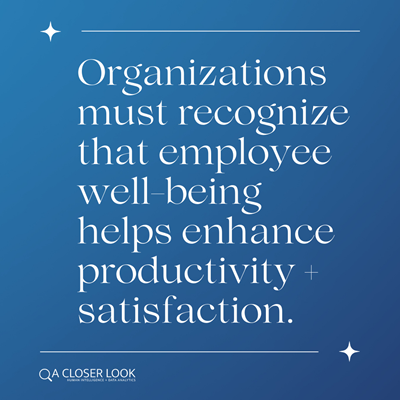
Overcoming the Overwhelm: Empowering Today’s Professionals to Thrive in the Workplace
The modern workplace is marked by:
- Heightened expectations
- Constant connectivity
- Incessant demand for productivity
- Significant turnover issues
The repercussions of an overwhelmed workforce extend beyond the individual, directly impacting employers, as well, in the form of lower productivity and loss of top talent. When employees feel burdened by excessive workloads, their ability to focus, make informed decisions, and effectively execute tasks can be compromised.
Streamline Priorities:
If you find yourself saying this phrase often, “I’m so sorry, I have been extremely busy lately…” then like Stevie Ray Vaughn once sang, “you’re caught up in the whirlwind, can’t catch your breath.” One of the primary contributors to professional overwhelm is the lack of clear priorities.
With an abundance of tasks and responsibilities, it is easy to feel pulled in multiple directions, leading to a sense of chaos. To combat this, professionals must first evaluate and establish their key objectives. By identifying and aligning their priorities, they can better:
- Focus their time and energy on tasks that truly matter
- Enable themselves to work efficiently and make meaningful progress
In the book The 4 Disciplines of Execution, authors Sean Covey, Chris McChesney, and Jim Huling explain the importance of identifying and prioritizing a few key goals or “Wildly Important Goals” (WIGs) that will have the most significant impact on the organization’s success. By narrowing the focus, teams can direct their energy and resources towards accomplishing these goals. By homing in on a limited number of WIGs, teams can avoid spreading themselves too thin and diluting their efforts across multiple initiatives.
Be responsive:
Effective time management is a skill that can significantly alleviate workplace overwhelm. Microsoft Outlook, as well as other email platforms, has built in functionality to help manage and prioritize how communication is managed:
- Features like Focused Inbox separate your incoming emails into two tabs: “Focused” and “Other.”, allowing you to focus on essential emails first and then review the rest, streamlining your email responses.
- Other features like Rules and Conditional Formatting enable you to automate certain actions based on specific criteria and create rules to automatically sort emails into folders, forward emails to specific recipients, or highlight important messages.
Foster Open Communication and Collaboration:
Workplace overwhelm can be exacerbated by a lack of open communication and collaboration within teams. Encouraging a culture that focuses on authentic transparency can create an environment where individuals feel comfortable expressing their challenges and seeking help when needed. By fostering collaboration, professionals can:
- Tap into the collective expertise of their colleagues
- Share the workload
- Help prevent burnout
With many companies being understaffed, the need to share the workload has become extremely important. According to an article in the Harvard Business Review, delegating tasks allow you to focus on high-priority activities that align with your core responsibilities and expertise.
By distributing tasks among team members, you can:
- Ensure that work is accomplished within deadlines without feeling overwhelmed or overloaded
- Free up time for you to concentrate on more complex or strategic projects that require your expertise
- Feel empowered to better utilize your time and make progress on multiple goals simultaneously
Prioritize Self-Care and Work-Life Balance:
In the pursuit of professional success, it is essential not to neglect personal well-being. Overworking and sacrificing personal time can lead to:
- Chronic stress
- Decreased productivity
- Diminished job satisfaction